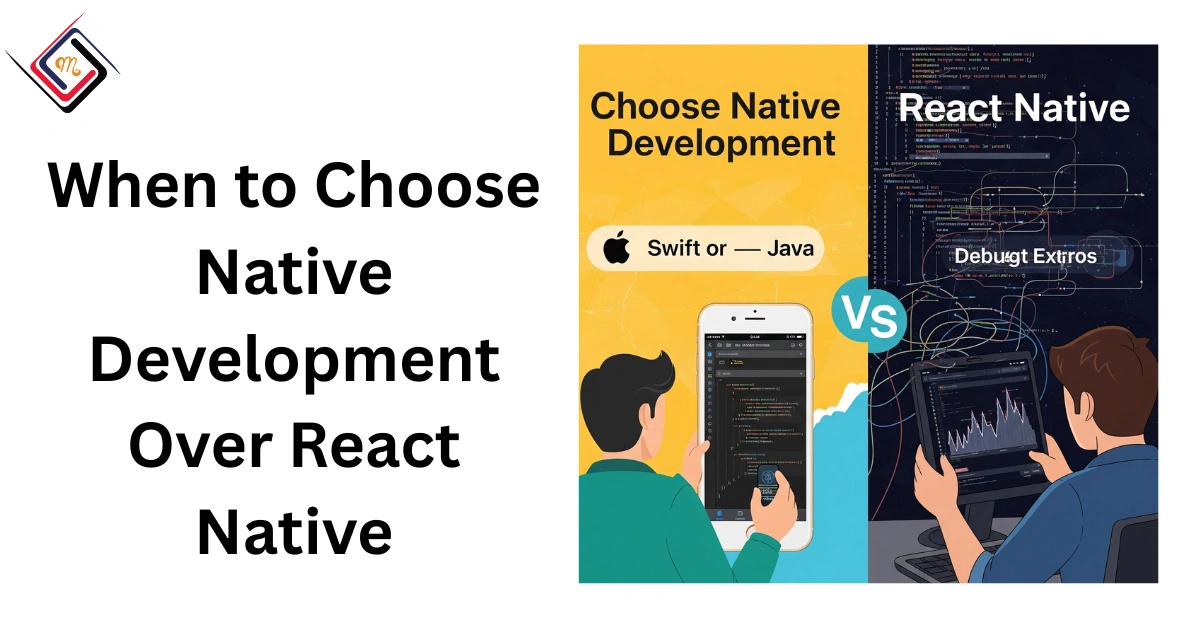Today, businesses have endless options when building mobile apps. And two popular choices are:
React Native – build once, run on both Android & iOS
Native Development – build separate apps for each platform
But here’s the real question:
“When should you choose native development over React Native?”
Let’s explore the clear reasons why native development still matters in 2025, especially when performance and user experience are top priorities.
First, What’s the Difference?
React Native allows developers to write code once and use it across Android and iOS apps. It’s efficient and saves time. But…
Native development means creating separate apps for Android (using Kotlin/Java) and iOS (using Swift). This takes more time—but often results in better performance and smoother experiences.
When to Use Native vs React Native App Development
React Native is great for:
MVPs or prototypes
Apps with simple UI
Startups with limited budgets
But for complex, performance-driven apps?
That’s where native shines.
Top Reasons to Choose Native Development Over React Native
Here are the main advantages of going native:
1. Superior Performance
Apps that require fast loading, real-time updates, or hardware integration (like GPS, Bluetooth, or AR) perform much better when built natively.
2. Better User Experience
Each platform (Android/iOS) has its own design language. Native apps feel more natural and fluid because they follow platform-specific UI/UX standards.
3. Access to Platform Features
New OS features (like Face ID, widgets, or background tasks) are often available in native SDKs before React Native gets support for them.
4. Stronger Security
Need high security for banking, healthcare, or enterprise data? Native apps allow better control over encryption and secure APIs.
5. Reliable Third-Party Integration
Some advanced APIs, SDKs, and third-party tools work more reliably with native apps.
Native App Performance Metrics That Matter
When comparing app performance, here are key native advantages:
Faster load time
Lower battery consumption
Smoother animations & transitions
Better offline handling
Optimized for device hardware
These performance metrics make native apps ideal for gaming, productivity tools, or mission-critical apps.
So, When Should You Go Native?
Choose native development if:
You need maximum performance (e.g., games, finance apps)
Your app needs to use advanced device hardware
You’re targeting specific platform behaviors or UI
You’re building a high-security app
You want complete control over performance and updates
Final Thoughts: Choose Smart, Not Just Easy
While React Native is an excellent choice for many projects, it’s not a one-size-fits-all solution. If your app needs to be fast, secure, and deeply integrated with mobile hardware, native development is the way to go.
Don’t just choose the easy path—choose the right one for your app’s future.
















